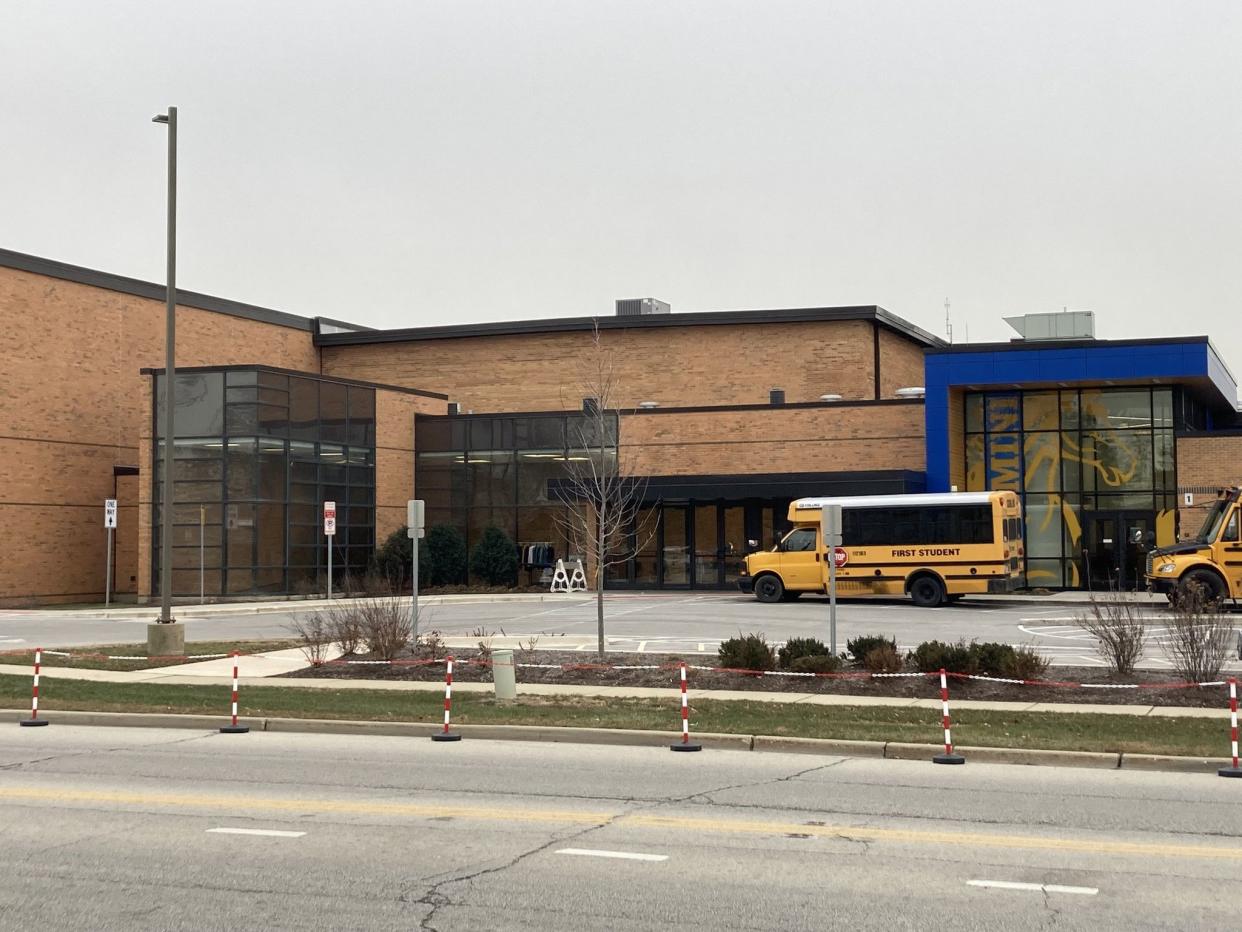Gemini Middle School assignment has parents discussing what’s appropriate at what age

A social media post about a book at Gemini Middle School in Niles has generated a wide variety of opinions on what’s appropriate for adolescents to read at what age, but a spokesperson for East Maine School District 63 said that no teacher ever assigned the book in question.
That spokesperson, Janet Spector Bishop, said a seventh-grade student chose the book from the seventh-grade classroom library for a small-group assignment. After one parent expressed concerns, the school gave the child an opportunity to select a different book, which the child did, she said.
Bishop noted that classroom libraries are a curated set from Columbia University’s Teachers College Reading and Writing Project, and are chosen by a team of literacy teachers and children’s literacy experts.
Last week, an anonymous person posted on a private Niles-area Facebook group, “These are pages from a book that was offered/ given to 7th grade students at Gemini Middle School. I have a question for the group. Is this acceptable material for middle schoolers (11-13 yr olds) to read?”
The post included a cropped review of the book, “Rani Patel in Full Effect,” by Common Sense Media, a nonprofit organization that rates content on its suitability for children at various ages as well as its quality. The nonprofit recommended the book for children 14 and over. The post also included three photos of pages of the book which depict sexual violence and include references to sexual abuse of a girl. The poster did not provide context for the pages or explain that the book is about a 16-year-old girl who has been sexually abused and is trying to heal and find her strengths, helping her victimized mother in the process.
“Rani Patel in Full Effect” was a finalist for the William C. Morris Award, which honors the year’s best books written for young adults by a previously unpublished author.The author, Sonia Patel, is a child and adolescent psychiatrist.
The social media post generated 60 comments, with commenters expressing a wide range of opinions. Some said the book is inappropriate for middle school students and some thought it beneficial that middle schoolers have an option to read more challenging material. One parent suggested the school could have sent home a permission slip for parents to sign and, if they declined, to provide alternate reading material.
One commenter said, “If you find it unacceptable for your seventh grader, then explain to your child why you think they should not be reading it and help them choose another book. Maybe let them know when you think they should read it. Other parents can do the same. You can expect other families to have similar and different opinions than yours.”
Another said, " It says for ages 14+. I would question younger kids reading it.”
Yet another wrote, “The written word should be available for all. However if you feel it isn’t appropriate for your children, I would reach out to the educator directly.”
Still another commenter said, “I don’t believe this is appropriate. We sent our daughter to private school because of this sort of nonsense. I encourage you to check out Awake Illinois.”
Bishop sent the following statement from District 63 Superintendent Dr. Shawn Schleizer, but the district did not respond to the Chicago Tribune/Pioneer Press’ requests for an interview with an administrator. Here is the statement:
“At our Gemini Middle School, one parent expressed concerns about a book her child chose for a small group activity.
Gemini staff responded, noting that the book was not assigned reading. While this book is recommended for ages 12-17, staff let all students know that if they felt uncomfortable after choosing a book that might have more mature content, they were free to change their selection. This particular student was offered the opportunity to select from a number of other books.
At D63, classroom libraries are a curated set from Columbia University’s Teachers College Reading and Writing Project – chosen by a team of literacy teachers and children’s literacy experts. They do align with our curriculum, but of course there is no exact science when recommending ages or grade levels for specific books – because every student is different.
Likewise, different families have different ideas about what might be appropriate for their children and so schools typically keep a wide range of diverse reading materials on hand. We encourage parents to maintain an open dialogue with their children about their own expectations regarding reading material, and to directly contact their child’s school with questions.”

